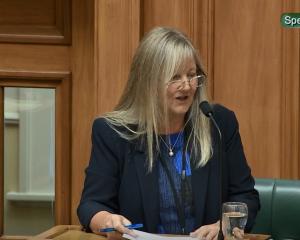Opposition parties are calling for mandatory country of origin labelling on New Zealand foods after four cases of hepatitis A were linked to frozen imported berries. But Minister for Food Safety Jo Goodhew says the Government has no plans to do so.
The call comes after the Ministry for Primary Industries identified the source of three of the four cases of hepatitis A infection, but refused to release the name of the brand or the berries' country of origin.
Green Party food safety spokesman Steffan Browning said consumers should be able to find out where their food comes from, so they can make informed choices about what they eat and feed to their children.
"The Government should back consumers and local food producers and introduce mandatory country of origin labelling on all food," he said.
"The hepatitis A risk will hurt New Zealand producers even though their berries are not implicated, simply because there is no country of origin labelling and so consumers don't know where their berries are coming from."
Labour's food safety spokesman Damien O'Connor said MPI's refusal to name the affected product was not helpful for consumers, food producers or importers of safe products.
"New Zealand consumers want and deserve to have clear origin labelling on their food products. The lack of information from MPI is resulting in people around New Zealand throwing away products that might be safe," he said.
But Ms Goodhew said country of origin labelling did not provide information about the safety of food.
"It is costly for industry and there is already a high level of voluntary labelling for single ingredient whole foods in response to consumer demand," she said.
"The two supermarket chains have had voluntary country of origin labelling for single ingredient whole foods in their supermarkets for about seven years. Combined, they account for approximately 70 per cent of single ingredient whole foods sold in New Zealand.
"Most packets of imported frozen berries already provide the country of origin. Countdown, for instance, actually has testing in place for their frozen Homebrand berries, and label the packets with country of origin."
In August, a Consumer New Zealand survey found that of the 10 types of frozen berries surveyed, most were "upfront" about where their berries came from - which included China, Chile, Turkey, Netherlands and Peru.
Consumer New Zealand spokeswoman Jessica Wilson said the organisation believed country of origin labelling should be mandatory so consumers could make informed choices about what they bought.
"If there's evidence identifying the brand associated with the hepatitis A cases, it's in consumers' interests for this information to be made public."
In New Zealand, country of origin labelling is not compulsory, except for wine, but businesses must not mislead consumers.
According to the Ministry for Primary Industries, the main reason for not adopting mandatory country of origin labelling was the cost involved.
"Voluntary use of country of origin labelling, in response to consumer interest, delivers the benefits without imposing additional costs on all consumers or compromising New Zealand's trading interests."
The potential impact of mandatory country of origin labelling has not been reviewed by the Government for 10 years. In Australia, it is required on all foods.












